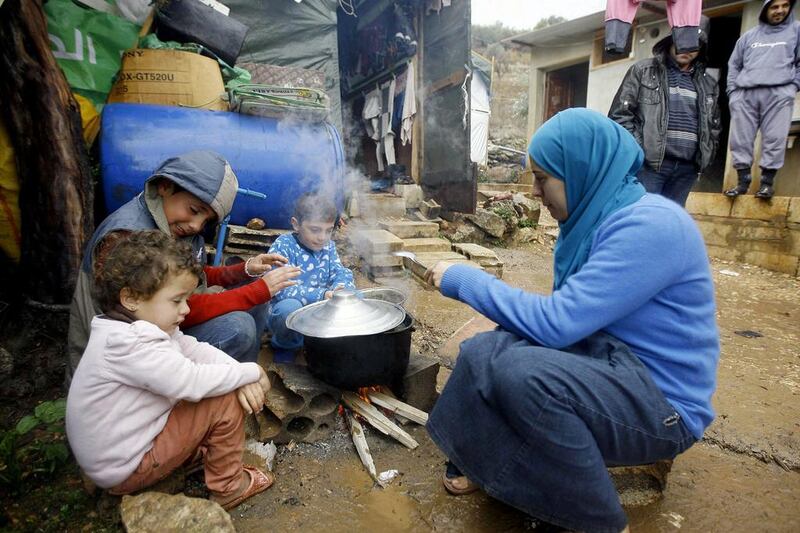The misery endured by the estimated 1.6 million refugees from the Syrian conflict has been widely reported. Aid agencies have been warning for many months that the situation has escalated beyond their capacity to cope. While some countries have risen to the challenge in terms of providing financial and material aid, including shelter to these desperate people, it has not been enough. As The National reports today, the World Food Programme (WFP) has been forced to suspend its voucher scheme that is feeding Syrian refugees in Jordan, Lebanon, Turkey, Iraq and Egypt because it has simply run out of money.
The shortage in funds – an extra $64 million (Dh235m) is said to be needed for this month alone – was foreseen, but a compassion-fatigued world has been slow to respond. There are parallels here with the Ebola crisis in west Africa, which escalated throughout this year after multiple warnings from Médecins Sans Frontières that the situation was getting out of control were ignored. Arguably, immediate action to control the outbreak that was declared in April would have resulted in the early containment of Ebola and a much lower death toll.
The fear in the current refugee crisis is that resentment will build within the countries that are unfairly shouldering its burden, leading to unrest. One of the side benefits of the WFP voucher scheme was that it allowed the displaced people to put money into the economies of their host communities by purchasing groceries and other necessities of life.
The global community must pitch in, once again, with money to allow the food programme to resume, and more countries must come forward and resettle refugees. A particular responsibility in this regard rests with Iran and Russia, whose continuing support for Bashar Al Assad in Syria has played a large role in creating a humanitarian crisis on the current scale.
As the winter closes in, the situation for the displaced Syrians, and their hosts, will only get worse. While we seem no closer to ending the Syrian conflict, the world community can and must do more to ease the suffering of those made vulnerable by it.





